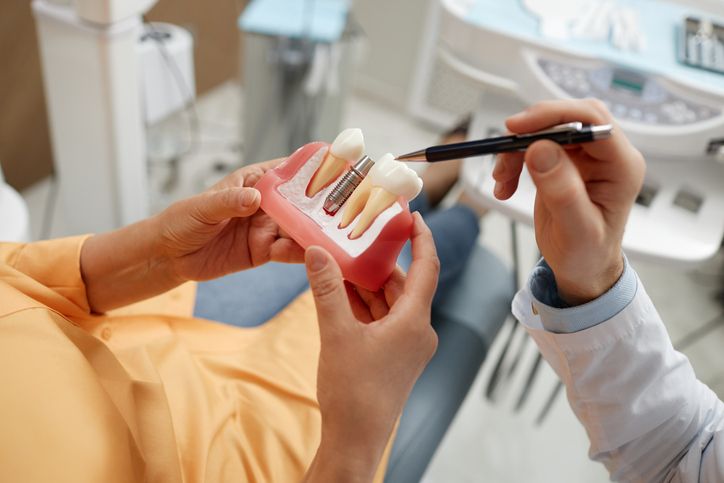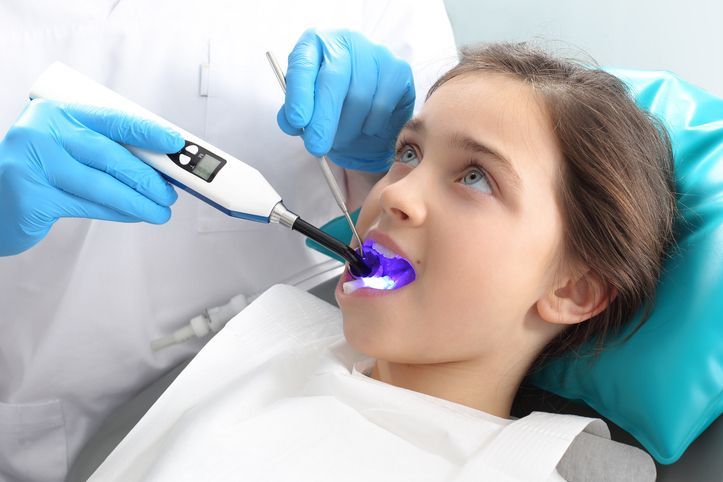Invisalign and Wisdom Teeth
You have followed all your orthodontist’s recommendations, and you have diligently worn your Invisalign aligners for the correct amount of time to achieve a straighter smile. The last thing you want is for something like your wisdom teeth to affect your new smile.
While it is a valid concern, whether your wisdom teeth can affect your orthodontic treatment will depend on your specific situation.
What are Wisdom Teeth?
Your wisdom teeth, also known as third molars, are the teeth located in the back corners of your mouth. They typically begin to emerge between ages 17 and 21. They are different from your other teeth because they begin to grow at age seven, and they do not serve any purpose.
At some point, wisdom teeth may have been useful to our ancestors when they had harsher diets and larger mouths. Now that our diets contain softer foods and our jaws are smaller, wisdom teeth are no longer useful for survival.

When Should My Wisdom Teeth Be Removed?
Commonly, most people have their wisdom teeth removed in their late teens to early twenties. Roughly 85% of people will require extraction, but surgery is not required for everyone.
Why are Wisdom Teeth Removed?
Two main reasons for removing your wisdom teeth are to alleviate any immediate pain or infection and to reduce your risk of dental issues in the future caused by your wisdom teeth. Removal may be recommended depending on how your wisdom teeth have come in. There are three ways your wisdom teeth can erupt:
Fully erupted – This means they have completely grown in.
Partially erupted – This means the wisdom teeth have erupted partway with the part of the teeth hidden beneath the gums.
Impacted – In this case, the wisdom teeth are trapped below the gums.
Impacted wisdom teeth can lead to cysts, tumors, infection, and pain down the road. If you have partially erupted wisdom teeth, you are at risk for bacterial infection since they are difficult to clean properly. In these two cases, your dentist will recommend that you have them removed.
Fully erupted wisdom teeth can also lead to issues since they can be difficult to get to for flossing and brushing. This can increase your risk of tooth decay.
How Can Wisdom Teeth Affect My Orthodontic Treatment?
Typically, the best age for children to get braces is between 8-14 years old, before their wisdom teeth come in, while Invisalign patients tend to be older and may have already had their wisdom teeth removed. In most cases, orthodontic treatment will begin before your child has their wisdom teeth removed. Fortunately, you will not likely need to delay treatment.
For older teens or adults, if your wisdom teeth are crowding your mouth, it could make realigning your smile more difficult. To check whether your wisdom teeth are a concern or not, your dentist will perform an x-ray prior to fitting you for Invisalign.
Wisdom teeth are not likely to affect your treatment with braces or Invisalign. Aging is typically the cause of teeth shifting, and wearing a retainer can help to prevent movement. Your orthodontist will monitor your teeth after completing Invisalign to check for any signs of crowding.
If your wisdom teeth come in during your Invisalign treatment, you will be able to continue your treatment as directed. You may need to take a break from your aligners to allow the area to heal, but you will not have to worry about delaying your progress.
Invisalign at Severns Dentistry & Orthodontics
At Severns Dentistry & Orthodontics , we provide expert Invisalign treatment for children, teens, and adults. We will perform x-rays prior to your Invisalign fitting and explain how your wisdom teeth may affect the alignment of your teeth. Contact us today to schedule your consultation.
The post Invisalign and Wisdom Teeth appeared first on Severns Dentistry and Orthodontics.

Author:
Natalie Severns, DMD
Upon graduating from the University of Pittsburgh School of Dental Medicine, Dr. Severns specialized in Orthodontics and Dentofacial Orthopedics at the University of Pittsburgh School of Dental Medicine. She then did an externship in London, England, at the prestigious Guy’s Hospital. At this hospital, she learned top therapies in Dentofacial Orthopedics to provide her patients with the best possible facial esthetics.
Blog










